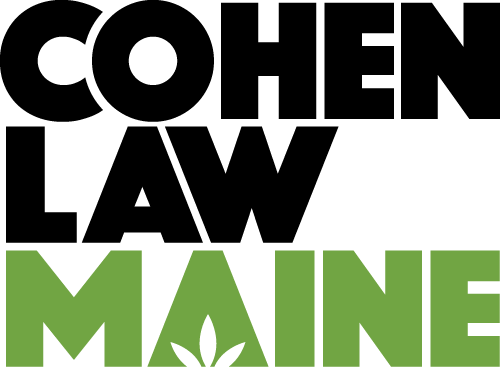Maine’s Office of Cannabis Policy released important guidance this month on how tobacco rules apply to cannabis companies.
As you know from previous blog posts, Maine’s Department of Agriculture requires all of those who sell items like rolling papers, electronic vaporizer devices, wraps, pipes, etc. to obtain a Retail Tobacco License – as noted in the Rules Relating To The Sale and Delivery of Tobacco Products In Maine
“Under Maine Law, a tobacco product is not only a product that is made from or derived from tobacco. A tobacco product is also any product that contains nicotine, that is meant to be smoked, heated, chewed, absorbed, dissolved, inhaled or ingested by any other means, and any component or accessory used in the consumption of a tobacco product. Tobacco products include, but are not limited to, cigarettes (including pre-rolled cannabis cigarettes, sometimes referred to as “pre-rolls” or “joints”), cigars, hookah, pipe tobacco, chewing tobacco, snuff, snus, electronic smoking devices, filters, rolling papers, pipes and liquids used in electronic smoking devices, whether or not they contain nicotine.”
Some major takeaways from the Office of Cannabis Policy Tobacco Guidance Document from October 7th include:
- Clarification that caregivers must have a retail tobacco license to conduct sales in a face to face retail manner only
- Clarification that delivery of tobacco products is not permitted under current law
Delivery of these items is prohibited under state law. Those found in violation could face fines issued by DHHS.
Remember that it is not acceptable to sell “tobacco products” (as defined above) to medical patients under the age of 21.
We encourage our clients to review the guidance document carefully. We have raised this issue with the Maine Cannabis Industry Association for inclusion in their legislative agenda – it will take legislative action to change the law and associated rules.
OCP also released this OCP Guidance for Lab Uncertainty which outlines its intention of allowing a 5% plus or minus lab uncertainty to determine whether a sample of edible cannabis products passes or fails mandatory testing for potency. OCP reminds licensees in this document that the 5% allowable swing is intended to assist those licensees who are attempting to produce maximum-allowable potency edibles (10mg per serving/100mg per package) to minimize having to throw away entire batches of product due to small deviations, NOT to allow licensees to consistently breach allowable limits in potency.
Finally, OCP Released this Guidance Memo on Mixed Trim and Kief Packages regarding the combining or commingling of various strains of cannabis trim or kief into mixed strain packages. This guidance document has been developed in response to inquiries from licensees and a noticeable trend in the state’s inventory tracking system related to this type of activity.
“The Adult Use Cannabis Program Rule, 18-691 C.M.R., ch. 1, defines a “harvest batch” as “a specific quantity of adult use cannabis harvested from adult use cannabis plants of the same strain, grown under the same conditions, and harvested during a specified period of time from a specified cultivation area within a cultivation facility” [emphasis added]. Cannabis flower, cannabis trim, and kief are included in this definition of “harvest batch”.
OCP has determined that it is permissible for cultivation facility licensees to create combined packages of cannabis trim, which include cannabis trim from multiple harvest batches, as well as combined packages of kief, which include kief from multiple harvest batches, for the purpose of transferring those packages to a manufacturing facility for further processing; or in the case of kief, also for the purpose of packaging for retail sale to consumers after mandatory testing. In order to engage in this activity, a cultivation facility must first create initial harvest batch packages of cannabis flower, trim, or kief in the state’s inventory tracking system, Metrc. Once that step has been completed, they may then combine different packages of trim or kief into one combined “mixed strain” package of trim or kief for the purposes of transferring to a manufacturing facility for extraction; or in the case of kief, also for the purpose of packaging for retail sale to consumers after mandatory testing.
Similarly, a cultivation facility that is creating raw pre-rolled cannabis cigarettes from commingled trim or kief must create initial harvest packages of cannabis flower, trim or kief in Metrc, and then may combine packages of trim that will be rolled into pre-rolled cannabis cigarettes.
Nothing in this guidance shall be construed to exempt a cultivation facility licensee from remitting excise taxes on all cannabis flower (including kief) and cannabis trim transferred from the cultivation facility to another licensee.”
